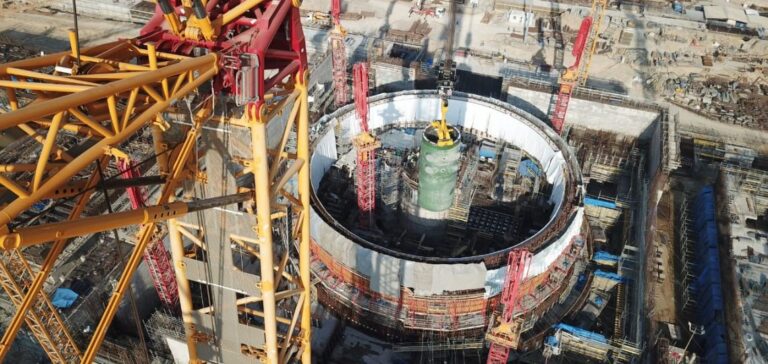Founded in 2011, First Light is based on the UK Atomic Energy Agency (UKAEA) campus in Culham, near Oxford. His approach to English nuclear fusion is based on projectile fusion, a branch of inertial confinement fusion.
Major advances in British nuclear fusion: key collaboration with Tractebel
In December, in the United States, the National Ignition Facility produced a fusion energy gain using lasers. However, First Light Fusion’s innovative approach relies on hypervelocity compression of a target, generating the temperatures and pressures needed to trigger fusion.
Innovative design solves major challenges: neutron damage, tritium, intense heat. The “liquid lithium wall” method accelerates tritium production in the reactor chamber. This strategy gives First Light Fusion a unique advantage in achieving tritium self-sufficiency.
A liquid lithium environment surrounds the fusion reaction, making it easier to achieve tritium self-sufficiency and design for excess production.
The two companies stated that the Machine 4 demonstrator, once completed, “will house the world’s largest electrical pulse generator, with a diameter of 75 meters”. Tractebel will “leverage its international expertise in fusion”, acquired in particular through its involvement in projects such as the International Thermonuclear Experimental Reactor in France, to contribute to the success of this project.
Nick Hawker, CEO of First Light Fusion, said, “The design and development of Machine 4 … is well advanced as we aim to complete the project well before the end of this decade. We are delighted to be working with Tractebel during this critical phase, harnessing their unrivalled expertise in major fusion infrastructure projects.”
Energy revolution: Tractebel and First Light Fusion catalyze British nuclear fusion
Denis Dumont, Global Head of Nuclear Energy at Tractebel, said, “With this contract, Tractebel reaffirms its commitment to supporting the nuclear industry in the UK, in both fission and fusion, and to contributing to the UK’s ambition to achieve carbon neutrality by 2050 … thanks to our internationally recognized nuclear experience, we are able to provide innovative solutions for the most complex projects. We look forward to developing our collaboration with First Light Fusion.”
In January, First Light Fusion and the UKAEA signed an agreement to design and build Machine 4. This machine will promote the development of technologies for future inertial confinement fusion power plants.
First Light says “it will have a stored electrical energy of around 100 megajoules, with the ability to launch projectiles at a speed of 60 kilometers per second. This impact speed inside the target will accelerate to around 200 kilometers per second thanks to First Light’s exclusive amplifier technology. The amplifier focuses the projectile’s energy into the fusion fuel, increasing the pressure resulting from the impact to transmit it to the fuel and shaping the waves to produce spherical implosions.”
The current Machine 3 propels a projectile at a speed of around 20 kilometers per second.






















